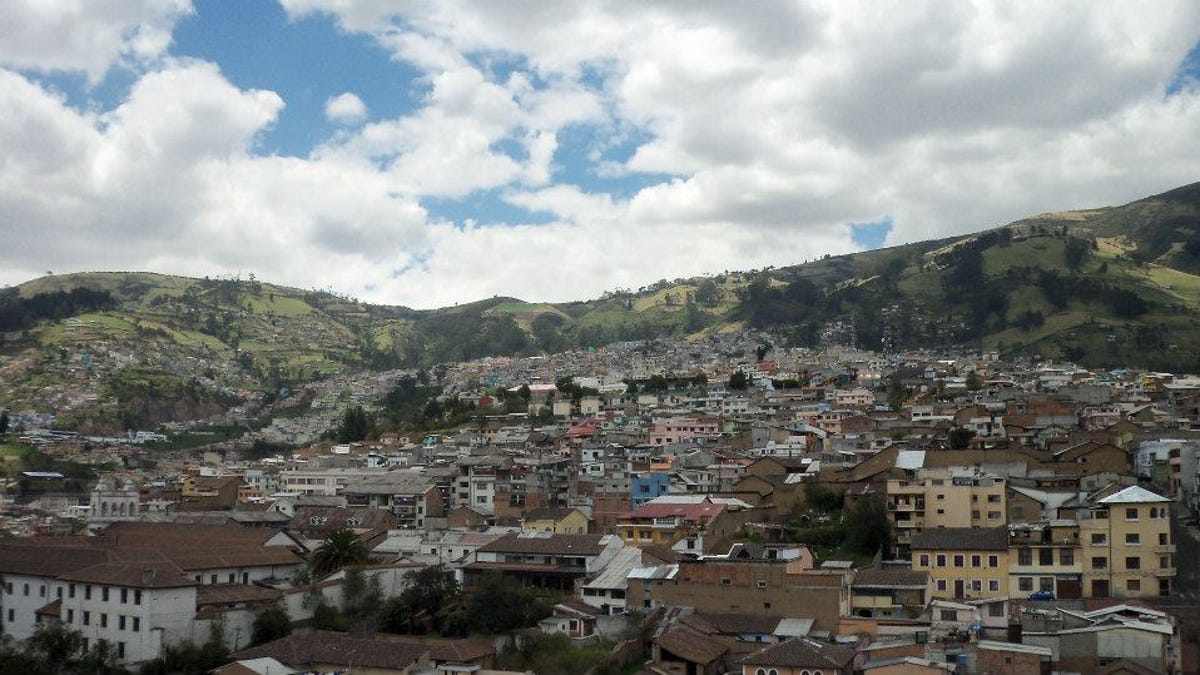International data roaming for $20 a MB! Why?
Crave's Eric Mack gets a message from Verizon upon landing in Ecuador that leaves him wondering why global data roaming costs so much.

QUITO, Ecuador--I received the most hilarious text message Verizon Wireless has ever sent me upon landing at the airport here in Ecuador's capital. When I turned on my phone while taxiing to the gate, an automated message from my carrier informed me that my beloved unlimited data plan no longer applies in the Southern Hemisphere (it doesn't work standing directly on top of the equator either, it turns out).
Much to the contrary, in fact, calls home could cost me as much as $2.89 per minute; texts are 50 cents each (receiving texts, though, is actually a bargain at a nickel each); and if I manage the patience for Quito's 1X CDMA wireless data network, Verizon will reward me by charging up to $20.48 per megabyte.
To put that rate in perspective, the amount it would cost me to check my e-mail once via the network could buy me a filling lunch here every day for a week and a half.
Of course, that's a very glass-half-empty attitude. To consider it another way, if I skip checking my e-mail during three of my frequent taxi and bus rides around this sprawling mountain metropolis, I'll have saved enough to pay for my flight to Cuenca, my next destination in the south of the country.
To Verizon's credit, it offers a global data-roaming package that provides 100MB for about 25 bucks a month. That's a far cry from my unlimited 4G at home, and so far I haven't had the patience for South America's subpar CDMA network. And the question remains, why does international roaming data have to cost so much?
According to Onavo, which develops apps that help you monitor your mobile data usage and bill, the problem is basically that it involves two network carriers ruled by totally unrelated government rules and regulations that have to coordinate with each other to provide service. What makes it worse is that the carrier you're a visitor on while traveling abroad has all the leverage and no incentive to offer you a good deal:
You are not their subscriber - don't want to pay the premium of roaming? Don't use your phone. The story of data roaming is expensive because the entire roaming cost is incurred by the subscriber instead of being covered by the carrier.
So, while I haven't seen the actual contracts outlining the inter-operator fees Ecuador's telecoms are charging Verizon to allow me to digitally roam (somewhat) freely here, it seems possible that they're actually doing me a favor by even offering that 100MB for just 25 bucks. Wouldn't that be nice? But still, I think my Razr's going to be spending lots of time in airplane mode while I'm here.
The good news is that while the rates resulting from insane international inter-operator charges aren't really in sync with the reality the rest of us live in, Quito is in sync with much of the rest of the global technology regime.
Public Wi-Fi here is plentiful in parks, cafes, and various lobbies; a prepaid SIM card for my other phone -- an unlocked global GSM wanderer -- costs just five bucks and I can add decent 3G coverage for a price (mobile broadband plans here are more expensive than at home, but not unreasonable). As long as my Verizon phone stays in airplane mode, I just might be able to afford it.

